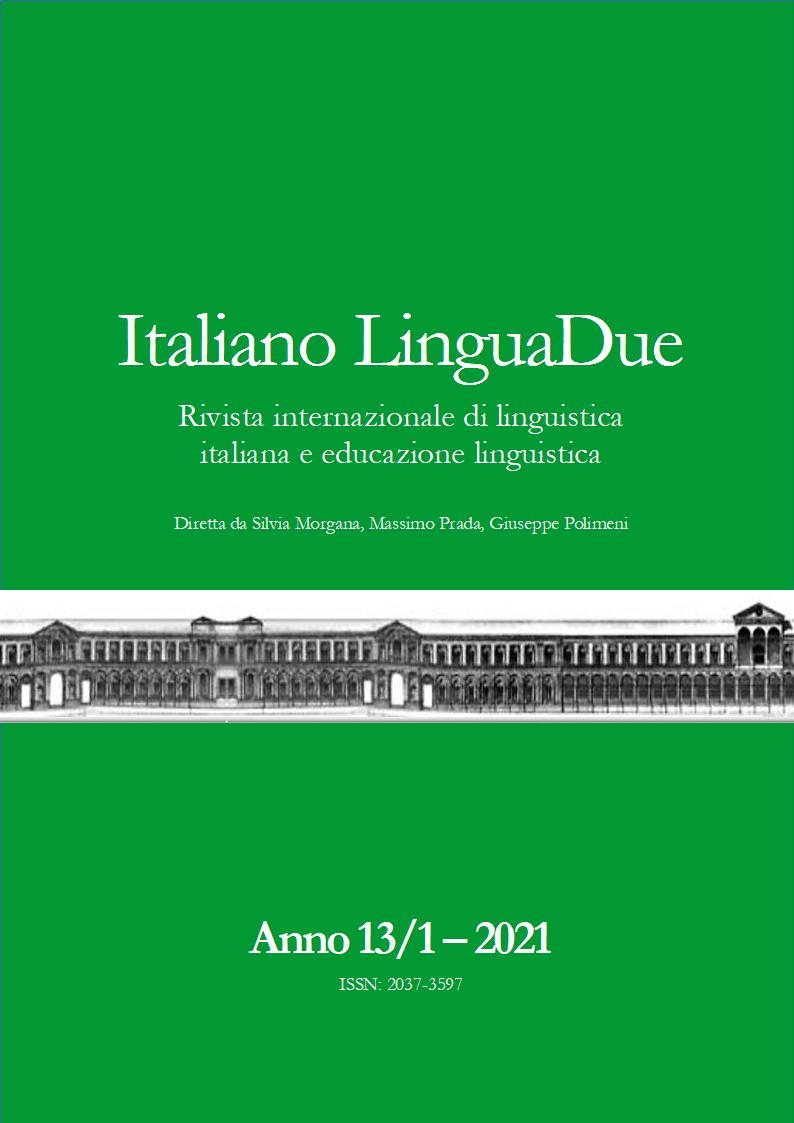INTEGRARE GLI APPROCCI: LABORATORI INCLUSIVI E FACILITAZIONE LINGUISTICA NELLA PRESA IN CARICO MULTIDIMENSIONALE DI MINORI STRANIERI DEL PROGETTO FAMILIA
DOI:
https://doi.org/10.13130/2037-3597/15858Abstract
Il contributo riflette sui vantaggi di un approccio integrato nei progetti di presa in carico di famiglie migranti. A partire dall'esperienza del progetto FAMI FAMILIA (Famiglie Migranti: Interventi Locali di Inclusione Attiva), si mostreranno i vantaggi di una progettazione multi-livello e multidimensionale, dove l'apprendimento della lingua seconda gioca un ruolo importante. L’intervento è stato svolto principalmente nel Comune di Prato, con una maggioranza di famiglie provenienti dalla Cina, ed è stato finalizzato alla presa in carico di nuclei con figli con disagio sociale e sintomi di disturbo dell’adattamento. Focalizzandosi sull’impianto della RAP (Ricerca Azione Partecipativa), si vuole evidenziare come una ricerca condotta in modo accurato, possa portare alla comprensione di punti di vista sommersi, ricostruendo dinamiche altrimenti inosservabili. Inoltre, si descriverà com’è stato ideato un laboratorio scolastico inclusivo a classe intera, volto non solo al miglioramento delle competenze linguistiche degli alunni stranieri e all’aumento delle relazioni inclusive ma anche all’osservazione e al monitoraggio dei comportamenti degli studenti target. Infine si cercherà di mettere in luce come un approccio alla ricerca-azione che integri discipline e professionalità diverse, risulti efficace in contesti di intervento complessi con aree ad alto livello di segregazione e ghettizzazione.
Integrating approaches: inclusive workshops and linguistic facilitation in the multidimensional assignment of foreign minors of the FAMILIA project
The contribution reflects on the advantages of an integrated approach of projects for taking charge of migrant families. Starting from the experience of the FAMI project FAMILIA (Migrant Families: Local Interventions of Active Inclusion), we will show the advantages of a multi-level and multidimensional design, where the learning of the second language plays an important role. The intervention was carried out mainly in the Municipality of Prato, with a majority of families from China, and was aimed at taking care of families whose children have social hardships and symptoms of adaptation disorder. Focusing on the system of PAR (Participatory Action Research), we want to highlight how accurate research, can lead to the understanding of submerged points of view, reconstructing situations otherwise undetectable. In addition, we will describe how was conceived an inclusive school workshop, for a whole class, aiming not only at improving the language skills of foreign students and increasing inclusive relationships but also at observing and monitoring the behaviour of target students. Finally, we will try to highlight how an approach to action research that integrates different disciplines and professional skills is effective in complex intervention contexts with areas with a high level of segregation and ghettoization.




